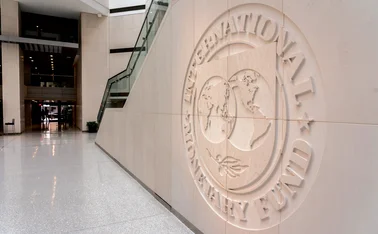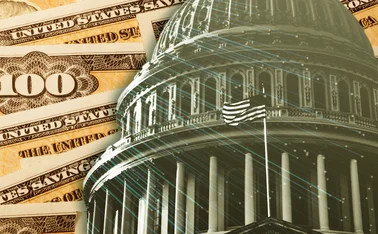
The spirit of the Volcker Rule
President Obama's decision to champion Paul Volcker's vision of the future of banking has at last provided the essential political leadership needed to drive radical reform. Central bankers around the world have been quick to endorse the spirit of the proposed Volcker Rule. Of course, as central bankers from Jean-Claude Trichet to Mervyn King have stressed, the vision outlined by the president in a few short paragraphs on 21 January needs to be complemented with other policy measures. Bankers complain it is missing the all-important detail, causing damaging uncertainty. Even in the United States, its fate is uncertain; the reforms that eventually emerge from the legislative mill will doubtless bear only a passing resemblance to the original vision. But don't assume they will be watered down under pressure from the banks. They may emerge even tougher.
President Obama's leadership has fundamentally altered the terms of the debate. Certainly, the proposals have shown up the weakness of the initial response by other governments, notably that of the United Kingdom. As Mervyn King said in recent testimony to Parliament, radical reform is now on the table.
Contrary to the pained outcry from the bankers, there is no reason why reforms that embody the spirit of the Volcker Rule, once worked out in detail, should not prove workable and effective. They are not the full answer; they need to be supplemented with other reforms. Mervyn King talks of a three-legged stool: first, reform of capital and liquidity regimes, including contingent capital as a major part of the liability structure; second, a framework for allowing banks to fail ("resolution") including "living wills"; a bank should not be allowed to become so complex that it is impossible to let it fail because nobody knows what the impact will be; and third, a workable banking structure, including a move from branches to subsidiaries to limit risk at the national level. Deep structural faults and the expectation of rescue have led us to this plight. Even if monetary policies had been much more prudent, these flaws would have led to successive financial crises.
Then there is the lesson of the crisis that ordinary small depositors cannot be allowed to lose any money. The idea of trying to get small depositors to share in the "monitoring" of the soundness of banks - as part of market discipline - will not work. But if so, then obviously the quality of the assets held by institutions with such liabilities has to be closely controlled and the return to shareholders reduced to reflect the low risk, low reward prospects of this kind of financial institution.
Some critics complain that this "populist" initiative diverts attention from the culpability of central banks for fuelling the crisis by creating excess liquidity and low interest rates, and from the failure of regulators and supervisors. The most closely regulated parts of the system failed, so why call for more regulation? But these proposals do not imply that the banks are the only parties responsible for the crisis. Central bankers must certainly learn their lessons, and they are being slow to acknowledge that. In particular, the speech given by Ben Bernanke on 3 January where he argued that monetary policy during the period leading up to the crisis "does not appear to have been inappropriate, given the state of the economy and policymakers' medium-term objectives" was misjudged. If central bankers are unable to learn their lessons, how can ordinary mortals be expected to?
However, one thing at a time. What Obama and Volcker have done is to focus attention on faults in the structure of the banking system. Some critics have complained they just add up to "more regulation". This also is misconceived. Rather, proposals to change the system to make it less risky recognise the limits of what regulation can achieve. Instead, we need a fundamental change in the structure of the liabilities of the banking system. There must be a better alignment between the riskiness of the assets of a bank (and risks resulting from its trading activities) with the depositors' and bondholders' perception of the riskiness of their claims on the bank. Because of the expectation of a rescue, these had become hopelessly out of line. There is no reason why action to bring about such a better alignment, if complemented by other policies, and a needed overhaul of monetary policies, should not succeed in preventing a recurrence of this kind of crisis.
Agreement on the diagnosis
Banks, and their spokesman the Institute for International Finance, are complaining that the United States has not "coordinated" its proposals with other leading countries. True, the detail has not been internationally agreed and perhaps cannot be. However, the Volcker proposals reflect the way that leading central bankers in the United Kingdom, Europe and Japan have all been moving. This is clear from recent remarks by Trichet and King. At the Bank of Japan, Masaaki Shirakawa is thinking along the same lines, as are most central bankers attending the meetings at the Bank for International Settlements. They all know each others' general views and share much the same diagnosis. Indeed, until Obama's announcement, they had started to despair of the political will to take decisions that they have long considered necessary (Ironically the only central bank to harbour reservations about the Volcker proposal appears to be the Fed itself, to judge by recent remarks made by Kevin Warsh, a governor).
Japan has implemented Glass-Steagall in practice, if not in theory. The banks there do not do that much proprietary trading. In fact, the Volcker Rule will be relatively easy to implement not only in Japan but also in the rest of Asia.
Universal banks would be able to adjust to the spirit of the Volcker Rule, as under Glass-Steagall. In any case they have not been undertaking as much pure proprietary trading as US and some British banks. Banks will continue to be allowed to trade and provide sophisticated hedging and other services - so long as they are linked to customer requirements. Of course, policing these lines will be difficult and to some extent arbitrary, but policed they can certainly be.
Then there are questions about bank holding companies. Our view is that as long as the holding company owns an investment bank together with a "boring" utility commercial bank that should be acceptable. However, the investment bank must be a legal entity with its own capital. The holding company must have sufficient equity funds to re-capitalise the investment bank. Trading between the subsidiaries will have to be arms length. But all this detail can be sorted out.
Markets can learn to live with the rules
If the markets get the message, and are scared enough, they can go a long way to police the rules themselves. In fact it is essential that the leading financial players develop a means of living within "the spirit of the Volcker Rule", dispensing with too much fussy regulation. If regulators keep among their weapons and under their cloaks a few very blunt weapons - such as power to close a finance institution if it misbehaves - you will soon find that markets will know what is within and what is outside the new rules. It will be called ethics.
How to deal with non-banking institutions, hedge funds and so on? By tough policing and making sure none of them either get too big to fail.
As President Obama pointed out, US banks have lived with a 10% cap on deposits since 1994, thanks to the rule that no bank can take over another if the resulting entity controls more than 10% of nationwide deposits. Such a rule can be extended, modified and applied more widely to all financial institutions, with the limits reduced and applied globally.
Obama's proposals do not go far enough, that is true, and face a tough fight to be implemented even in the United States; but he has decisively set the trend internationally towards more radical action. It needs to be understood that these proposals are in line with the views of many senior central bankers. If the political momentum is maintained, some banks will over time have to slim down and reduce risky activities. It is true that the required restructuring needs to be phased in gradually. There is a tension between the need for bank lending to support the recovery and the longer-term need to raise capital and restructure banking. Bankers are right to point out the costs and inefficiencies that will result. But the public's retort is: "Tough luck." You have had your chance and you failed. Yes, we know the economy will suffer and we will try to minimise this damage but it is better than being held to hostage by banks again.
In recent leaders, Central Banking has argued that the breakdown in trust, which lies at the heart of the crisis, has resulted from mistakes made by policymakers in both public and private sectors. We have also argued that politicians must confront the finance lobby. President Obama has recognised this. All friends of democracy and of sound finance must hope that something like the Volcker Rule is enforced not only in the United States but around the globe.
From Paul Volcker's testimony, 2 February
"This is not a question in my mind of what is the greater risk, it's a question of what risks are going to be protected by the federal government through the safety net," Paul Volcker told the Senate committee on banking, housing and urban affairs.
"Hedge funds, private equity funds and trading activities unrelated to customer needs, unrelated to continuing banking relationships, should stand on their own," Volcker said. Non-bank financial firms would simply have to learn that they were "free to trade, free to invest, and should be free to fail," he said.
Questions were also raised on the aim to place a limit on firms consolidating. Asked how "excessive growth", as it was specified in the president's speech, would be qualified, Volcker responded: "It's like pornography - you'll know it when you see it."
Only users who have a paid subscription or are part of a corporate subscription are able to print or copy content.
To access these options, along with all other subscription benefits, please contact info@centralbanking.com or view our subscription options here: http://subscriptions.centralbanking.com/subscribe
You are currently unable to print this content. Please contact info@centralbanking.com to find out more.
You are currently unable to copy this content. Please contact info@centralbanking.com to find out more.
Copyright Infopro Digital Limited. All rights reserved.
As outlined in our terms and conditions, https://www.infopro-digital.com/terms-and-conditions/subscriptions/ (point 2.4), printing is limited to a single copy.
If you would like to purchase additional rights please email info@centralbanking.com
Copyright Infopro Digital Limited. All rights reserved.
You may share this content using our article tools. As outlined in our terms and conditions, https://www.infopro-digital.com/terms-and-conditions/subscriptions/ (clause 2.4), an Authorised User may only make one copy of the materials for their own personal use. You must also comply with the restrictions in clause 2.5.
If you would like to purchase additional rights please email info@centralbanking.com







